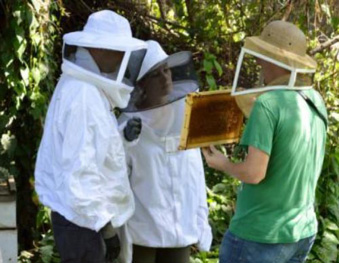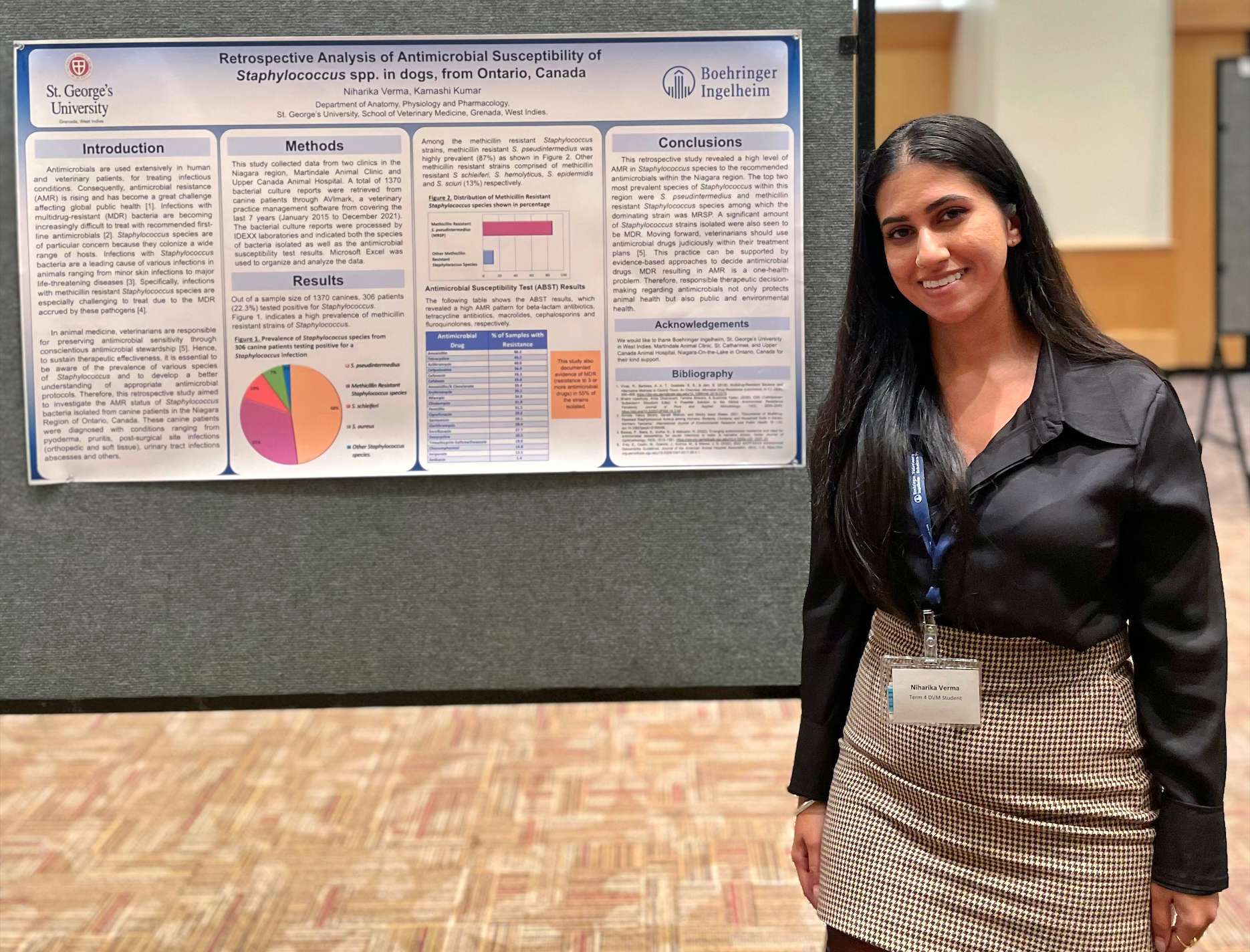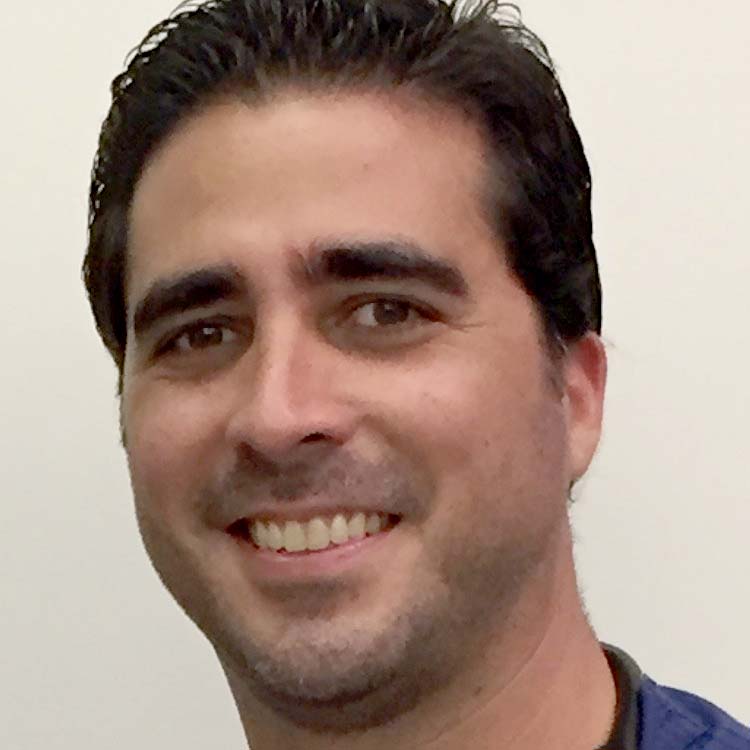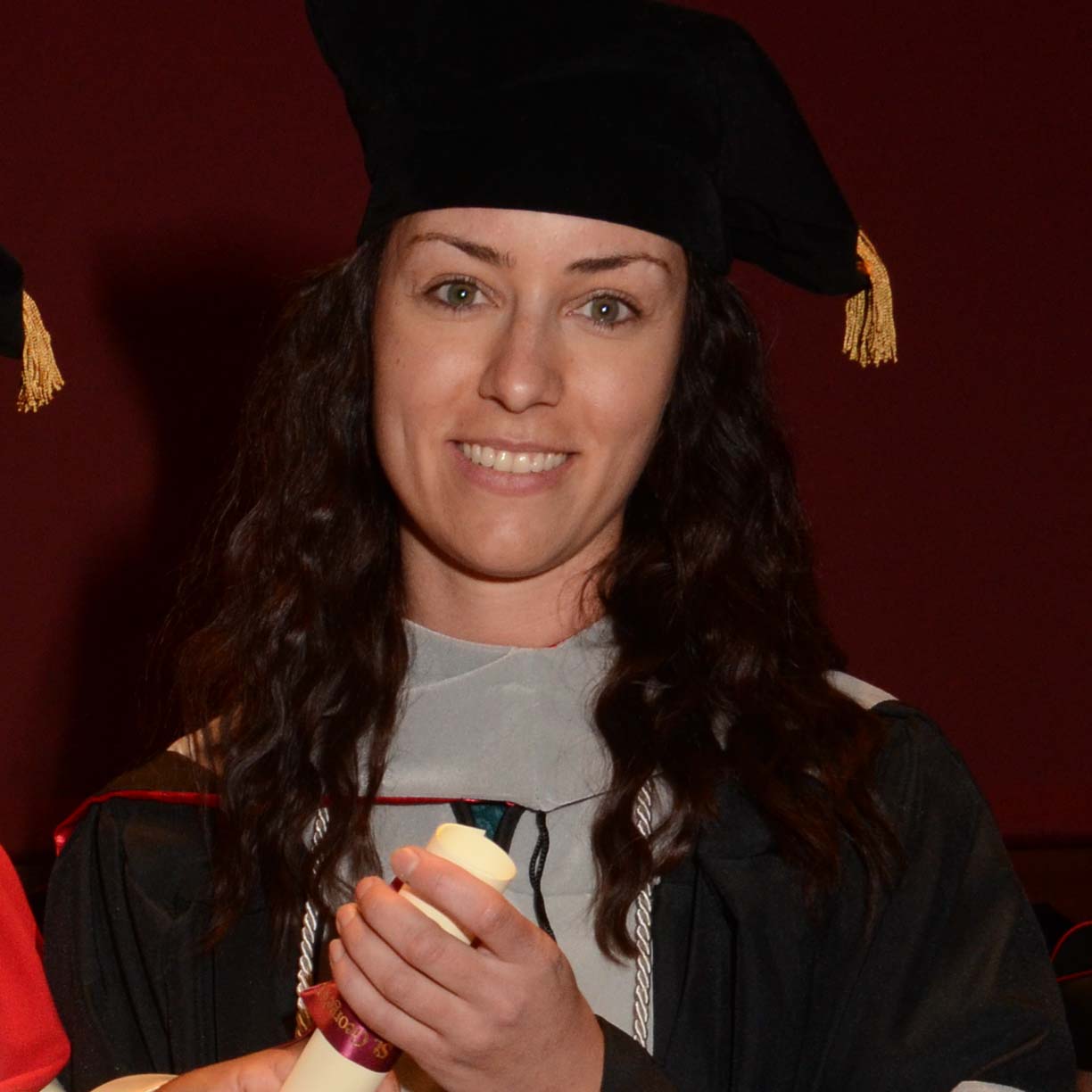Island Veterinary Scholars Program
Advance your research skills in comparative and veterinary medicine.
Interested in learning more about research but don’t have much (or any) research experience? You can advance your skills in veterinary research methodology at St. George’s University through the Island Veterinary Scholars Program (IVSP).
Welcome to the Island Veterinary Scholars Program (IVSP)

St. George’s University, School of Veterinary Medicine (SGUSVM) is proud to offer the Island Veterinary Scholars Program (IVSP) for veterinary students interested in summer veterinary research.
Features:
- Research experience with skilled mentors
- Field trips, workshops, poster presentations and other extracurricular activities
- A stipend for each IVSP scholar and travel expenses to attend the Veterinary Student Symposium (VVS)
- Opportunity to attend and present at the 2024 National Veterinary Scholars Symposium which will be hosted by the University of Minnesota, August 8-10th, 2024. For additional information please visit
To learn more about the program and to apply, please check out the corresponding tabs.

The IVSP is a summer research program ideal for for ��1st and 2nd year veterinary students with little or no research experience. Paired with a skilled mentor, you will be encouraged to develop independent research skills and collaborate with fellow researchers and students. With support from your mentor, you’ll complete your research project within the 10-week summer program for presentation at the 2024 Veterinary Scholars Symposium, which will be hosted by the University of Minnesota, August 8-10th, 2024, and at the SGU Research Day.�� Additionally, through seminars, workshops, and field trips, you’ll gain insights into the best practices driving contemporary research.
Students may alternatively have the possibility to conduct their research at the Texas Tech University (TTU) veterinary school (). Please contact Dr Cheetham (scheetha@sgu.edu)�� if you would like to inquire more about this option.
Program Objectives
- Provide a mentored research experience for veterinary students with little to no previous research exposure. Mentors in the IVSP are committed to providing a positive learning environment for novice, but motivated students.
- Provide a structured environment in which veterinary students will successfully develop research independence and successfully collaborate with fellow researchers and research students. The IVSP is designed to provide scholars with a framework in which they can successfully experience training and full immersion in veterinary research.
- Promote effective research mentoring. Scholars will interact with senior researchers; junior faculty; graduate students; and other students, researchers, and technicians.
- Enhance understanding of and interest in veterinary research. Through seminars, workshops, and field trips, scholars will be exposed to the breadth of research opportunities in Grenada in particular and how research in this part of the world can have global significance.
For a student to be considered for the IVSP scholar stipend, co-funded by Boehringer Ingelheim:
- Applicants must be active veterinary students at SGU or a non-host veterinary institution. Preapproved students from associated international veterinary schools may apply.
- Applicants must be in the first or second year of their veterinary program (SGUSVM: Term 1-4 during Spring Term 2024).
- Applicants must NOT have a master of science degree (MSc) or a PhD, nor be in an MSc or PhD program. Scholars may have a master in public health or be in an MPH program.
- Applicants must able to fulfill all IVSP requirements, including being present at SGUSVM for all scheduled IVSP events, actively participating in mentored research during the designated summer research time, and constructing and presenting a poster for the SGU Research Day and ��the Boehringer Ingelheim/NIH Veterinary Student Symposium.
- Applicants must have strong undergraduate and professional academic records.
- Applicants with little to no research experience will be given preference.
- Applicants must complete and e-mail the IVSP student application to Ms. Noreen Clarke (NClarke@sgu.edu) no later than Friday, February 1st , 2024. ��Please see the tab labeled 2024 Student Application for further information.
For a student to be included in the 2024 IVSP summer program:
- Applicants must be active veterinary, medical or undergraduate students at SGU or a non-host veterinary institution.
- Applicants must exhibit a sincere interest in research.
- Applicants must contact Dr. Sonia Cheetham-Brow (scheetha@sgu.edu) to request more information
For a student to get recognition on their transcript for completing the IVSP:
- Students must participate in all IVSP events.
- Students must actively participate in mentored research during a designated research time period.
- Students must construct and present a research poster for the upcoming SGU Research Day.
This summer’s topic at SGU will explore the proof of Principle of Field Metagenomics Approach in Veterinary Diagnostics in Low-Resource, Remote Settings in the Tropics, e.g., Shelter Medicine, Rural Farms with Dr Kopp.
Students will have the option to choose from the following topics:
1) Project Title: Metagenomics Diagnostics of Infectious Diseases in Shelter and/or Community Outreach Small Animal Medicine
Abstract: This sub-project aims to demonstrate the utility of field metagenomics in identifying and characterizing viral, bacterial, fungal, and parasitic infections in shelter medicine settings. It will explore the pathogen diversity in sheltered animals (mainly dogs and cats) to improve diagnostics and enhance disease control.
Rationale including Hypothesis: Shelters and semi-feral companion animals owned by communities often face outbreaks of infectious diseases, and quick and accurate identification is crucial for disease management and veterinary public health. We hypothesize that metagenomics can efficiently detect and characterize pathogens in such small animal populations, facilitating rapid responses and inform effective preventive strategies.
Description of Student’s Activities: The student will collect samples from sheltered and/or community animals (preferably showing clinical signs), extract nucleic acids, and perform metagenomic sequencing using portable equipment. They will analyze data to identify pathogens and assess the potential zoonotic risk. In parallel, SVM laboratory-based conventional and molecular established (gold-standard if available) assays will serve as “reality-check” to assess the accuracy and feasibility (costs, time) in comparison with the point-of-care real-time next-generation sequencing (NGS) diagnostics approach.
2) Project Title: Field Metagenomics for Rapid/Farm-site Diagnosis of Livestock Infectious Diseases
Abstract: This sub-project aims to apply field metagenomics to diagnose pathogen infections in livestock, e.g., swine, cattle, small ruminants. It will assess the feasibility of using portable sequencing for rapid and accurate identification of pathogens while on the farm site.
Rationale including Hypothesis: Livestock diseases can have significant economic impacts. We hypothesize that field metagenomics can provide quick and reliable diagnosis, enabling timely disease control measures. This unbiased metagenomics approach also has the potential of enabling clinicians to determine a causative pathogen diagnosis in cases that would otherwise remain unspecified, especially if routine testing for a certain agent is not commonly available.
Description of Student’s Activities: The students will collect samples from livestock farms, extract nucleic acids, perform metagenomic sequencing, and analyze the data to identify pathogens. They will also assess the feasibility of on-site sequencing as compared to routine SVM laboratory diagnostic procedures.
3) Project Title: Portable Metagenomic Sequencing for Avian Disease Surveillance (domestic or wildlife, in case of wildlife could be also other species than avian).
Abstract: This sub-project aims to evaluate the use of portable metagenomic sequencing for avian disease surveillance in remote poultry farms (or to examine wildlife samples for example within sanctuaries or national parks). It will focus on identifying pathogens affecting poultry or wildlife populations.
Rationale including Hypothesis: Avian diseases can lead to substantial economic losses. We hypothesize that portable metagenomics can enhance disease surveillance, enabling early detection and control. (Wildlife pathogens pose a zoonotic risk to public health as spill over events can occur.)
Description of Student’s Activities: The student (s) will collect samples from poultry farms, perform nucleic acid extraction, conduct metagenomic sequencing, and analyze the data to detect pathogens. They will also assess the practicality of on-site sequencing in intensive poultry farm or backyard subsistence farming settings. In the case of wildlife application, the focus will be on simulating an off-grid and ruggedized mobile laboratory approach, while a back-up of a fully equipped diagnostics laboratory at the SVM would be also available.
IVSP Directors
Hyperlinks or emails are provided for directors and support listed below:
Sonia Cheetham-Brow, DVM, PhD
IVSP Director
Professor, Associate Dean of Research
Department of Pathobiology
School of Veterinary Medicine
Email: scheetha@sgu.edu
David Marancik, DVM, PHD, DABVP, CERTAQVET
IVSP Co-Director
Professor of Aquatic Animal Medicine
Director, Aquatic Animal Medicine Research Laboratory
Associate Dean of Graduate Studies
Email: dmaranci@sgu.edu
IVSP Mentors
Hyperlinks or emails are provided for potential mentors listed below:
School of Veterinary Medicine
School of Veterinary Medicine
Topics: Toxoplasmosis, cryptosposporidiosis in small ruminants, animal neoplasms, honey bee diseases
Topics: Canine Ehrlichiosis, transmissible venereal tumor
Topics: Medicinal plants and effects on pathogenic bacteria
, MSc
Topics: Infectious diseases (Ehrlichia, Anaplasma, Bartonella, TVT), zoonotic diseases
Topics: Aquatic medicine, lionfish, foodborne pathogens, molecular techniques
School of Veterinary Medicine
Topics: Ehrlichia, Anaplasma, heartworm, molecular techniques
, MSc.
Topics: Zoonotic diseases, vector-borne diseases
School of Veterinary Medicine
Topics: Molecular techniques, magnetic bead technology, pathogenic bacteria, zoonoses, Ehrlichia, Anaplasma
��۶���������������ϴ�ȫ
Topics: Epithelial ion transport, mucociliary clearance, cellular transduction, airway pharmacology
Topics: Palliation and end of life; Caribbean bioethics; culture and bioethics, research ethics, bioethics education, ethics in public health and health policy, climate change and health
Topics: Biochemistry, molecular and cellular biology, study of inborn errors of metabolism, mitochondria drug discovery, nutrition and metabolism, mitochondrial disease, human genetics
Topics: Neurology, stroke study, educational research, history of neurology, neuromyelitis optica, multiple sclerosis, neurological and mental health policy making
Department of Public Health and Preventive Medicine
Department of Public Health and Preventative Medicine
Topics: Emerging infectious diseases, zoonoses, food safety and food security. One Health/One Medicine concept
Graduate Studies
Topics: Parasitology, tropical medicine, epidemiology of parasitic zoonoses, ultrasound for tropical parasitic diseases
Undergraduate and Behavioral Sciences
Topics: Heat shock proteins, marine biology, global warming effects on coral reef development, developmental biology, molecular biology, genomics
Topics: Marine protected areas, coral reef conservation, coral bleaching, threats and impacts to coral reefs, macroalgal growth on coral reefs, sea urchin fisheries
Remember to check over the IVSP requirements before applying.
You can access the 2024 IVSP Student Application
��
While filling out the IVSP application, please be aware of the following:
- Save the document () to your computer. Make sure that the file name of your application includes at least your last name (for our benefit when receiving e-mailed applications).
- This is a Word document set up with text box form fields (grey rectangular boxes), checkbox form fields (framed grey squares), and drop-down form fields (“Choose an item.”). Information can be added to the form fields, but the document itself cannot be altered.
- Content for text box form fields can be copied from a separate document and pasted into the application.
- Follow the instructions and character/page limits.
- Put your name on every page of the application.
- Part E: Student Transcript must be scanned and e-mailed as a separate attachment or submitted as a hard copy. The transcript does not have to be an official copy.
- Two components of the application: (1) Part D: Student Curriculum Vitae, and (2) Part F: Mentor Letter of Support, may be e-mailed as separate documents. Please adhere to the character/page limits.
- The Scholar/Mentor contract (Part G) is due after acceptance into the IVSP and before the commencement of the IVSP (May 10, 2024).
- The deadline for this application is February 1st , 2024.
- Ms. Noreen Clarke (NClarke@sgu.edu) no later than Friday, February 1st, 2024.
Description of Events
IVSP Laboratory Workshops:
Background information and corresponding questions for laboratory-based workshops will be provided for participants in a laboratory handout.
- Workshop #1: Necropsy
The purpose of this workshop is to understand basics of necropsy and histopathology techniques and their applications in veterinary research. - Workshop #2: Marine Center Clinical Examination, Anesthesia and Blood Sampling of Fish
The purpose of this section is to understand the basic principles of clinical examination, anesthesia and blood sampling of fish, and how they apply to veterinary research. - Workshop #3: Clinical Pathology in Research
The purpose of this workshop is to understand the basic principles of hematology, clinical chemistry, and cytology techniques and how they apply to veterinary research. - Workshop #4: Molecular techniques
The purpose of this laboratory exercise is to understand the basics of how DNA/RNA is extracted from cells and how to perform PCR/RT-PCR. - Workshop #5: Parasitology in Research
The purpose of this workshop is to understand the basic of parasitology techniques and how they apply to veterinary research.
IVSP Field Trips:
Field trips will include a questions workbook, in which scholars will be posed questions involving research opportunities for each of the field trip locations.
- Marine Center: With the inclusion of the marine research veterinarian at SGUSVM, we will be focusing more specifically on marine aspects of veterinary research for field trips and workshop. Scholars will be given a tour of the marine center, learn about ongoing future marine research at SGU and participate in marine-based research techniques
- Snorkel/Scuba trip: We will be taking student on a scuba/snorkeling trip to enrich this experience from lab to fieldwork. SGU has several research projects involving fisheries including lionfish.
- GSPCA/ Grenada Bureau of standards: This trip to the Grenada Society of the Prevention of Cruelty of Animals (GSPCA) will expose scholars to the need for further research and education for companion animals of Grenada. A tour will also be made of the research facilities at Grenada’s Bureau of standards.
- Bat trapping: This experience provides an example of fieldwork, including material preparation, sample collection, safety and team work. ��
- Nesting Turtles SGU has partnered with Ocean Spirits to carry out research in turtles that inhabit Grenadian waters. Some of this research is done while leatherback turtles lay their eggs in nests on the beach during the nights of May.
IVSP Seminars:
All seminars are selected and designed to educate and to promote discussion among IVSP scholars on research topics and considerations.
- Hypothesis Based Research
During week 1 of the program, IVSP scholars will attend sessions that will address the following: what is hypothesis-based research, understanding the process of developing research proposals and their importance for acquiring research funding, and publishing research data. Scholars will work closely with their mentors to prepare a well-written one-page abstract of their proposed research that includes the hypothesis, specific aims, significance, rationale, and expected results. - One Health and Public Health in Research session
This session will discuss Public Health and its role in veterinary research. - This seminar presents how the concept of One Health is applied in SGU through several different projects involving the joint efforts of the Schools of Medicine and Veterinary Medicine.
- Partners in Research
This session will have presentations by members of the Grenadian Ministry of Agriculture. Its purpose was to expose scholars to the widespread relevance of veterinary research to the Government of Grenada and the current research projects by the Ministry of Agriculture. - Safety and Compliance
Veterinary research relies on proper adherence and awareness of safety in the laboratory and clinic, as well as compliance to rules and regulations. This session will involve presentations on safety and IACUC regulations on animal research. - Ethics in Research
Ethics involving research are always a consideration that must be discussed. This session will provide scholars with ethics-based articles and hold a discussion on the issues addressed in these articles. - Poster Creation and Presentation session
This session and one-on-one assistance will be provided to scholars as they prepare their posters for the IVSP Poster Day and the VSS /NIH Symposium.
Group Laboratory Meetings:
These meetings will be provided for IVSP scholars to discuss their research and questions/concerns with mentors, meeting leaders, and each other.
IVSP Poster Day:
IVSP Poster Day will be dedicated to displaying the veterinary scholar’s research achievements at St. George’s University and to preparing for future presentation at the Boehringer Ingelheim/NIH symposium. Posters will be displayed, and IVSP scholars will give a brief presentation of their posters to attending faculty, staff and students.
Boehringer Ingelheim/NIH Symposia

The Boehringer Ingelheim (formerly Merial)/NIH Symposium is held every year and gives veterinary students the opportunity to showcase their summer research. There are also a variety of sessions involving different research topics and numerous chances to network with fellow colleagues and seasoned researchers from the United States, Canada, the Caribbean and Europe.
Click for information on the Boehringer Ingelheim/NIH Symposium.
2022 Boehringer Ingelheim/NIH Symposium:�� Minnesota, USA
The 2022 Veterinary Scholars Symposium will be hosted by University of Minnesota, August 4 – 7, 2022.
2021 Boehringer Ingelheim/NIH Symposium: Ames, Iowa, USA
The 2021 Veterinary Scholar Symposium was hosted by Iowa State University in Ames, Iowa, August 4 – 6, 2021
2020 Boehringer Ingelheim/NIH Symposium
In 2020, the AAVMC hosted a virtual Veterinary Summer Scholars Symposium. The virtual Veterinary Summer Scholars Symposium featured a virtual poster session for student scholars to share their research
2019 Boehringer Ingelheim/HIH Symposium: ��Worcester, MA, USA
The general consensus was that the 2019 Boehringer Ingelheim��(BI) National Veterinary Scholars Symposium at The Worchester State University, Massachusetts, USA was an overall success and excellent learning experience.
The range of oral presentations, the topics covered, the opportunities for students to present their summer research projects using poster presentations and interactive networking sessions, were truly outstanding. Both the students and faculty of���� St. George’s University thoroughly enjoyed the opportunity to participate in the symposium.
The record number of student poster presentations is a positive indication that more and more veterinary students are interested in research and pursuing careers in research post-graduation.
The variety and range of presentations were impressive. All of the presentations were excellent, the speakers had great knowledge base and made themselves available to answer questions after their presentations. The presentations by Dr. Daniel Fletcher and the other criticalists were particularly outstanding.
2017 Boehringer Ingelheim/NIH Symposium: NIH, Bethesda, MD, USA
There were many strong attributes of the symposium but most outstanding amongst for Dr. Paharsingh and the scholars was the focus on Professional Student Development by Drs. T. Lyle and T. Mashima. Their presentation was memorable not only for content but also for delivery. The worked well worked with each other, had meshing personalities and they created a comfortable and inviting atmosphere for students to voice their concerns and ask questions (one of our students included).�� Dr. Tiffany Lyle’s insight into how she networked with various schools and used her human resource and organizational skills, shared a much needed and more practical perspective on how to approach the professional veterinary world as a student. Both presenters gave insight on how to balance personal life and having family while still achieving the most from your career. The symposium had an emphasis on encouraging future vets to go into research as a career, educating them on the ways in which they could achieve this goal and the opportunities available to them both as students (for example the comparative biomedical research track) and when they graduate.
Dr. Paharsingh and the students enjoyed the wildlife and conservation lectures, in particular Dr. A. Alonso Aguirre’s presentation: “Do You Want to be a Conservation Medic?: Dealing with the Gaps and Challenges of One Health for a Greener Planet”. His presentation was educational and the students felt that it was much needed exposure to the life of conservation medicine. Many students from multiple schools were heard considering careers in the field after the talk! All presenters were very helpful and inviting and the students were able to approach them easily after each track to ask questions and network. The scholars loved meeting students from other veterinary schools especially their fellow Caribbean island students from Ross University and they formed an inseparable bond from day one.
2016 Merial/NIH Symposium: Ohio State University, Columbus, OH, USA
All participants overall felt that the 2016 Merial/NIH symposium at The Ohio State University, Columbus, OH was an excellent learning and networking experience. It was considered a highlight by the scholars for the summer research program and a welcome return to her alma mater by Dr. Gibson.
The foci for the symposium were One Health and infectious disease. The IVSP scholars loved meeting students from other veterinary schools and the variety of talks, in particular the presentation by Dr. Jan Ramer. While disappointing that the symposium was not held on campus, it was still rich with information and contacts for the scholars and directors.
2014 Merial/NIH Symposium: Cornell University, Ithica, NY, USA
All participants felt that the 2014 Merial/NIH symposium at Cornell University, Ithica, NY was an excellent experience and participated to their fullest extent. It also was an excellent way to conclude the IVSP, with our non-host student able to catch up with her Colorado classmates and the director able to network with colleagues. The director also interacted with the two other SGUSVM students who were MVSP scholars at other veterinary institutions.
Overall, the scholars and director appreciated the experience of seeing and learning about the wide variety of researchers and research projects in veterinary medicine. Scholars commented that they appreciated receiving Dr. Natterson-Horowitz’s book: Zoobiquity in their packet. Dr. Gibson appreciated that the symposium was held at on-campus locations, allowing participants to see the campus. The choice of speakers, in her opinion was excellent. One of the speakers, Dr. Natterson-Horowitz, MD provided thought-provoking views of how veterinary and human medicine can interrelate and interact. There was a wide variety in the posters’ research topics and presentation of results, and it was enjoyable to listen to students explain their summer research experiences.
2013 Merial/NIH Symposium: Michigan State University, Lansing, MI, USA
All participants felt that the 2013 Merial/NIH symposium at Michigan State University (MSU) was a powerful learning experience. It also was an excellent way to conclude the IVSP, with our non-host student able to catch up with his Auburn classmates and the co-director able to network with colleagues and potential future collaborators. The co-director was also able to speak with other SGUSVM students and one former SGUSVM student who were MVSP scholars at other veterinary institutions. The SGUSVM co-director voiced multiple positive comments on the choice of symposium talks and entertainment. One of her favorite presentations was: “Nanoemulsion-based vaccines” by Dr. Paul Makidon. The co-director was also pleased to announce the inclusion of St. George’s University at the Merial program director’s meeting.
Most comments from IVSP scholars and other SGUSVM scholars attending the program at other veterinary institutions were positive. They enjoyed the hands-on experience of research and appreciated the comments, questions, and discussions generated about their posters and research. They appreciated all the work, difficulties, and rewards involved in a research project. It was also very entertaining to meet socially at the zoo and hear the surgeons’ band crooning to “Icky” (“Mickey” with reworked lyrics).
2014
Lori Miller
Zachary Pearl
2015
Kathryn O’Connell
2016
Amber Lee
Maya Lantz
2017
Alok Desai
Elan Armstrong
Samantha Cook
Christopher McMonagle
2018
Alyssa Gerbus
Brianna Piechowski
2019
Alexander Tsompanas
Devin Almonor
2020
Jieun Hong
Sara Schectman
2021
Adrian Jones
Allison Kearney
Research Opportunities for DVM Students
OTHER BOEHRINGER INGELHEIM VETERINARY SCHOLARS PROGRAMS
There are multiple veterinary schools in the United States, Canada and the Caribbean offering Boehringer Ingelheim-funded programs, as well as other research programs to non-host veterinary students.
Check out the Boehringer Ingelheim Veterinary Scholars Program website ( )
If you have any questions about the IVSP, please contact the following people:
IVSP Director/Associate Dean of Research:
Dr. Sonia Cheetham-Brow:�� scheetha@sgu.edu
IVSP Co- Director:
Dr. Ray Kaplan:�� rkaplan@sgu.edu
IVSP Administrative Coordinator:
Dr. Donna Neckles-Charles: DNecklesCharles@sgu.edu


